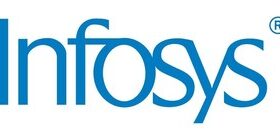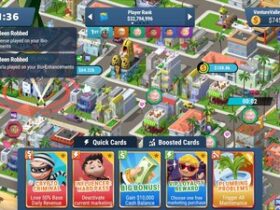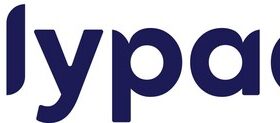KUNENE REGION, Namibia , Oct. 17, 2024 /PRNewswire/ — In the heart of Namibia , a passionate mission unfolds—a mission dedicated to responsibly and ethically conserving the endangered white rhino population and preserving its unique genetics. The Rhino Momma Project (RMP) was born from the heartfelt journey of the Muller family and their team, who are committed to protecting these incredible animals. While RMP promotes conservation efforts for white rhinos, the recent sale by the Muller family was conducted separately in full compliance with regulations.
“The Muller family and their team have dedicated over a decade to preserving the Southern white rhino’s genetic legacy.”
Guided by Ethics and Regulation:
Recently, with the regulatory approvals from the Namibian Ministry of Environment, Forestry and Tourism (MEFT), the Convention on International Trade in Endangered Species (CITES), and the U.S. Fish and Wildlife Service, and after many years of inspections and validation to ensure the genetic integrity of the white rhinos, the Muller family took a significant step in their mission to protect the genetic integrity of the Southern white rhino and promote biodiversity.
This involved a fully compliant and traceable process: from capturing the rhinos under MEFT supervision in Namibia to Jaco Muller and his team of veterinarians personally escorting 39 rhinos to the United States , where they were unloaded under the full supervision of the U.S. Fish and Wildlife Service. This successful transport continues the Muller family’s biodiversity efforts to preserve Southern white rhino genetics while adhering to stringent guidelines.
All activities related to this initiative comply with CITES regulations, and the permits secured explicitly prohibit horn harvesting for commercial trade or sports hunting outside of their historical range for the imported animal and their progeny, highlighting the unwavering commitment of all parties involved.
A Focus on Biodiversity:
The health of ecosystems relies on the species’ biodiversity. This initiative aims to create a natural hedge for the species’ longevity globally by consciously repopulating Southern white rhino genetics. While the Muller family are merely custodians of this important legacy and acknowledge the challenges in Namibia and across Africa , establishing these genetics in another country is a responsible safeguard.
“The Muller family and their dedicated team have devoted over a decade to preserving the Southern white rhino’s genetic legacy. Their mission goes beyond mere conservation and education; it’s about ensuring the survival of a species that holds immense ecological and cultural significance,” said James-Scott Wong , Board Member of the Rhino Momma Project. “In the face of constant threats to their natural habitat, sometimes the most effective way to protect a species is by establishing a parallel environment. Witnessing these challenges on the ground, I deeply empathize with the formidable and Herculean tasks that governments and private organizations struggle with when trying to protect species with finite financial resources.”
From Humble Beginnings:
In 2010, the Muller family took the first step by purchasing a rhino, igniting a dream of his son to preserve the Southern white rhino in Namibia . Their commitment to preserving the genetic diversity is vital for survival. By January 2013 , they celebrated the birth of their first calf—a moment that symbolized hope and the start of something greater. Over nearly a decade, their project has blossomed into a thriving breeding program that has resulted in 163 new rhinos being born, helping to counter illegal poaching worldwide.
As their initiative expanded, the Rhino Momma Project, a non-profit, was established to raise global awareness. However, its fundraising capabilities fall short of covering the financial and moral burdens the Muller family has shouldered.
Navigating Challenges:
This journey has involved significant sacrifices, with the Muller family personally funding most of the conservation project, which typically costs around five million Namibian dollars annually. This year’s droughts have further strained resources, adding incremental monthly feed costs of approximately two hundred thousand Namibian dollars. While the Muller family’s sale of rhinos may provide short-term financial relief in resources, the heavy financial burden remains as their undertaking has spanned over a decade.
Additionally, the sensitivity of this endeavor has come at a significant personal cost, requiring Jaco to ensure the safety of his family and team while protecting the rhinos. Each setback; however, only strengthens Jaco’s determination to succeed.
A Vision for the Future:
As the mission continues to thrive, the Muller family and the Rhino Momma Project invite both supporters and critics to witness the conservation efforts firsthand. There’s a significant difference between observing from a distance and experiencing the reality of the work in person. This transparency is vital, especially in a world where understanding can often be overshadowed by misrepresentation.
A Call to Action:
The Rhino Momma Project firmly believes in the power of collaboration and education. By opening their doors to the public, they aim to foster greater understanding, empathy, and support for the challenges, risks, and triumphs that come with any wildlife conservation.
Jaco is reminded of the words of Dr. Jane Goodall , “To save the rhinos, it is not enough to support anti-poaching efforts on the ground. We must also fight corruption, a tough challenge for there is corruption everywhere. Just do something, and do it now, before it is too late.” These words resonate deeply within the mission of the Muller Family in collaboration with the Rhino Momma Project.
Moving Forward Together:
“We are grateful to the Namibian Ministry of Environment, Forestry and Tourism, the Convention on International Trade in Endangered Species (CITES), and the U.S. Fish and Wildlife Service for their approvals of the appropriate permits and international oversight on compliance for our initiative in protecting the genetic integrity of the Southern white rhino and promoting biodiversity,” said Jaco Muller . “Additionally, we appreciate the trust placed in us by the Namibian Ministry of Environment, Forestry and Tourism to care for some of their black rhinos given our track record for creating a safe environment for these animals to thrive.”
Focused on the future, the Muller family and the Rhino Momma Project remain steadfast in their commitment to protecting the white rhinos and ensuring their survival for generations to come. Let’s unite in our efforts to promote transparency and work towards a sustainable future for these incredible animals. Together, we can protect Nature from human nature.
About Rhino Momma Project
The Rhino Momma Project is a nonprofit organization established to support the largest White Rhino breeding program in Namibia , who aim to save this magnificent yet sadly endangered White Rhino from extinction through anti-poaching strategies, conservation education, and importantly, breeding new calves to repopulate, Namibia , Africa , and hopefully the world. www.rhinomomma.com
Media Contact:
Sarah Robinson
GS Creative Strategy
sarah@gscreativestrategy.com
View original content to download multimedia:https://www.prnewswire.com/news-releases/responsible-custodian-conservation-the-muller-familys-mission-to-protect-the-genetic-legacy-of-the-endangered-white-rhinos-302278618.html
SOURCE GS Creative Strategy











Leave a Reply